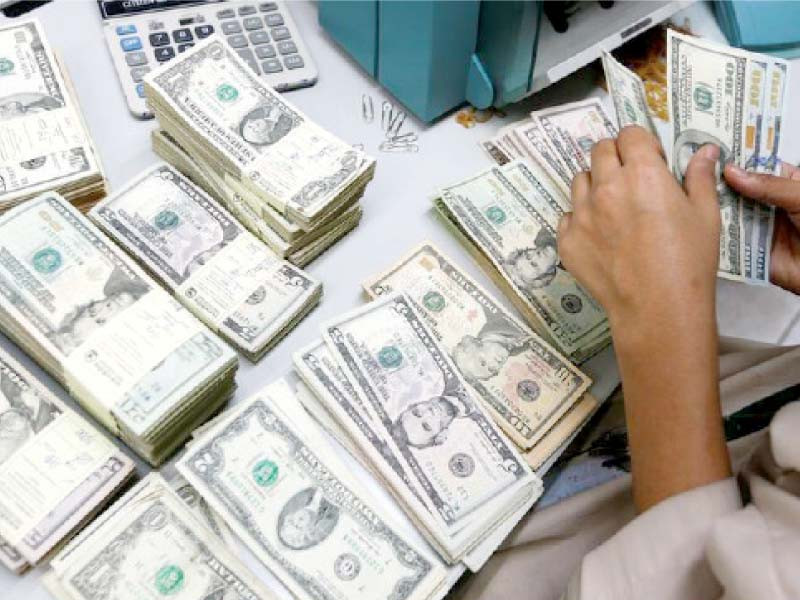
Foreigners turned net investors of rupee-denominated government debt securities like T-bills and Pakistan Investment Bonds (PIBs) in fiscal year 2020-21 and played a significant role in stabilising Pakistan’s foreign currency reserves at the present four-year high value of over $16 billion.
“The return of stability in rupee-dollar parity made the sovereign debt securities (PIBs and T-bills) attractive again for foreign investors,” said BMA Capital Executive Director Saad Hashemy while talking to The Express Tribune.
They gradually turned from net sellers to net buyers of the securities in the year - FY21. They had kick-started the year with modest selling but the situation reversed with the passage of time.
Although, they remained net investors of a nominal amount of $61.51 million in the previous fiscal year, “the (over the year FY21) trend suggests they may invest $1-2 billion in the current fiscal year (which began on July 1) if rupee remains stable against the greenback.”
They will invest keeping in view higher rate of return, which stands in the range of 7.3% on three-month T-bills to around 10% on 10-year PIBs in Pakistan compared to almost zero return on such investments in developed countries like US and UK.
They invested a gross amount of $973.46 million in the sovereign debt securities and pulled out $912.13 million during FY21, according to the State Bank of Pakistan (SBP).
More interestingly, they are investing in longer-term (3 to 20-year) PIBs and withdrawing from short-term T-bills (3 to 12-month). “This investment trend suggests that foreign investors foresee stability in Pakistan’s economy in the longer run,” Hashemy said.
“The hot money (foreign investment in T-bills and PIBs) inflows are becoming a sound option for Pakistan to maintain its foreign exchange reserves,” he said, adding that significant Roshan Digital Account (RDA) inflows coupled with raising debt by floating Eurobonds and Sukuk in the world markets were other sound options.
He hoped that rupee would remain stable during FY22 due to strong foreign currencies inflows on account of workers’ remittances, RDA and gradual revival in export earnings. The rupee closed at 157.87 against the US dollar in the inter-bank market on Friday.
The local currency appreciated 6.25% during FY21 and closed at Rs157.54 against the greenback in the inter-bank market on June 30, 2021.
To recall, foreigners poured historic high investment of over $2.5 billion in the first nine months (Jul-Mar) of FY20 keeping in view the then high benchmark interest rate of 13.25% and stability in rupee’s value against the US dollar. However, they restored to sell government securities in panic owing to outbreak of Covid-19 in February 2020 in Pakistan.
The outflows from the debt securities at around $2.5 billion dented the country’s foreign currency reserves and sent rupee falling to all-time low of Rs168.43 against the US dollar on August 26, 2020 compared to around Rs154 in March 2020.
Launch of RDA in September 2020 (which attracted over $1.5 billion to date), resumption of IMF loan programme in February 2021 and inflows from other international financial institutions supported rupee to achieve equilibrium against a basket of world major currencies these days. In addition, debt raised by Pakistan by floating Eurobonds and Sukuk lent further support.
Another financial expert, who spoke on the condition of anonymity, was doubtful if foreigners would remain net buyers of debt securities going forward.
“The developments on geo-political front, where tensions between Pakistan and US are on the rise, would determine the course of foreign investment and divestment in Pakistan as foreign investors of T-bills and PIBs are from Western countries like UK,” he said.
Secondly, foreigners poured over $2.5 billion in FY20 when the benchmark interest rate stood at a high level of 13.25% compared to 7% since June 2020 to date.
Published in The Express Tribune, July 4th, 2021.
Like Business on Facebook, follow @TribuneBiz on Twitter to stay informed and join in the conversation.


















COMMENTS
Comments are moderated and generally will be posted if they are on-topic and not abusive.
For more information, please see our Comments FAQ